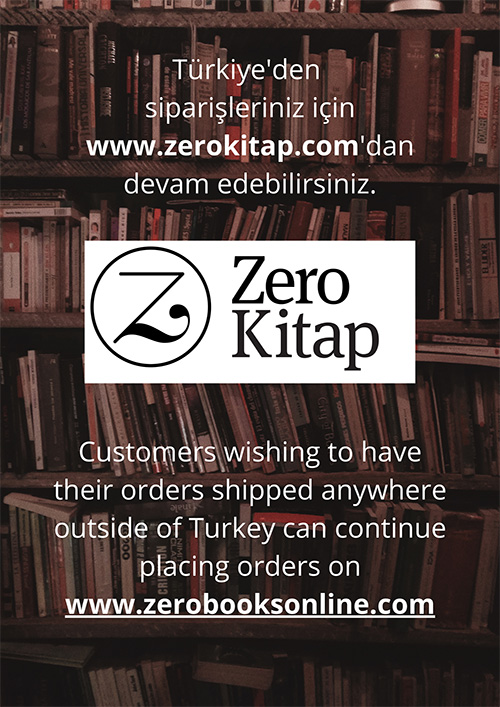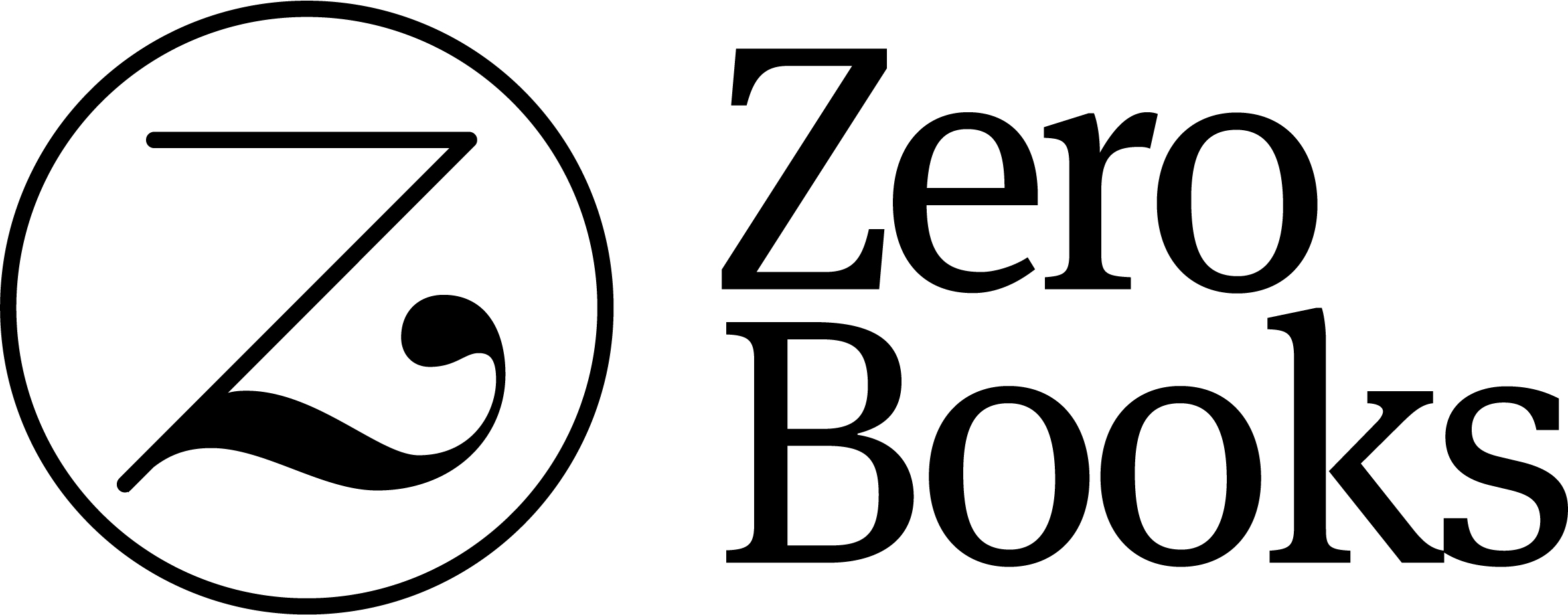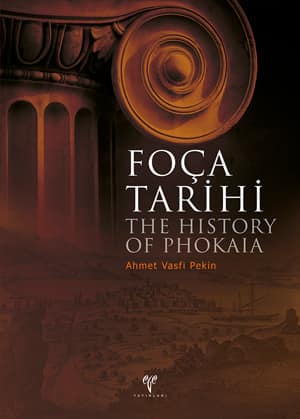169 pp, color figures, hb, in Turkish-English bilingual.
The elderly king of Tartessos regarded the Phokaians with so much favour as, to beg them to quit Ionia and settle in whatever part of his country they liked. Herodotos
The Phokaians escaping the Persian invasion laid the heaviest curses on the man who should draw back and forsake the armament; and having dropped a heavy mass of iron into the sea, swore never to return to Phokaia till that mass reappeared upon the surface. Nevertheless, as they were preparing to depart for Cyrnus, more than half of their number were seized with such sadness and so great a longing to see once more their city and their ancient homes, that they broke the oath by which they had bound themselves and sailed back to Phokaia. Herodotos
It was possible to find any kind of job, there was bread there (...) Nobody knew what poverty meant. A Greek citizen of Foça
Phokaia, having really fascinating natural formations, was no doubt, the most alluring and beautiful city of antiquity. Ord. Prof. Dr. Ekrem Akurgal
Foça for them was the blissful country of happy times in the past. Dr. Herkül Millas
Foça is a passion. Ahmet Vasfi Pekin
PREFACE
FOREWORD
1. INTRODUCTION
2. THE AEGEAN REGION IN PREHISTORY
a. Crete
b. Western Anatolia
c. Hellas
3. AEGEAN MIGRATIONS
4. CAN THE AEGEAN MIGRATIONS BE REFERRED AS COLONIZATION?
5. THE FOUNDING OF THE CITY
6. IS PHOKAIA AN AEOLIAN OR AN IONIAN CITY?
7. THE ORIGIN OF THE NAME PHOKAIA
8. SEA TRADE AND COLONIES OF PHOKAIA
9. REASONS FOR THE LONG-DISTANCE VOYAGES
10. THE STORY OF MASSALIA
11. THE STORY OF LAMPSAKOS AND LAMPSAKE
12. LIFE IN THE IONIAN CITIES
13. PERSIANS TAKE OVER PHOKAIA
14. THE IONIAN REVOLT
15. THE DELIAN LEAGUE
16. THE HELLENISTIC AGE
17. ARISTONICUS
18. UNDER ROMAN RULE
19. UNDER BYZANTINE RULE
20. THE GENOESE LORDS OF PHOKAIA
21. THE INTERIM PERIOD BETWEEN THE GENOESE LORDS AND OTTOMAN CONQUEST
22. THE VENETIAN ATTACK
23. ECONOMIC LIFE IN PHOKAIA
a. Byzantine Times
b. Genoese Times
c. Ottoman Times
24. FOÇA IN THE XX. CENTURY
a. Administrative Structure
b. Population
c. The Phokaian Identity
d. The Economy
Saltpans
Quarries
Water Springs
e. Tarihi Olaylar / Political Events
25. PHOKAİA KAZILARI / EXCAVATING PHOKAIA
a. First Phase excavations
b. Second Phase excavations
c. Third Phase excavations
i. First and Second Settlements
ii. Bronze Age Temples
iii. The Archaic Settlement
iv. Archaic Age Southern Necropolis and the Altars
v. The Tumulus of Maltepe
vi. Ceramic Workshops and Dumping Grounds
vii. Mosaics
viii. Underwater Investigations
26. FAMOUS PHOKAIANS IN HISTORY
a. Spokesman Pythermus
b. Architect Theodoros
c. Sculptor Telephanes
d. Admiral Dionysius
e. Aspasia of Phokaia
f. Phokaian Philosophers
27. PHOKAIAN COINS
28. PHOKAIAN INFLUENCES ON THE DEVELOPMENT OF ART, SCIENCE AND PHILOSOPHY
29. TRACES OF THE CULT OF DIONYSUS IN PHOKAIA
30. IMPORTANT HISTORICAL REMAINS IN PHOKAIA
a. Sacred Places of Kybele
i. The Kybele Cult in Phokaia
ii. Sacred Place of the Harbor
iii. Sacred Place of the Theater Hill
iv. Sacred Place of Fig Island (Bacheion-St. Georgios Island)
v. Sacred Place of Sickle Island
vi. Other Sacred Places of Kybele
b. Athena Temple
i. Was Athena an Anatolian Goddess?
ii. About the Athena Temple
iii. Was the Peninsula with the Athena Temple an Island in the Past?
c. The Megaron
d. The Wall of Herodotus
e. The Persian Monumental Grave
f. The Antique Theater
g. Hammam of the Devil
h. Aqueducts
i. The Castle of Five Doors
j. Mosque of Mehmed the Conqueror
k. Kayalar Mosque
l. The Masjid of Hafız Suleiman
m. Ottoman Graveyard
n. The Outer Castle
o. Windmills
p. Ottoman Hammams
q. Churches
r. The Siren Rocks
31. PHOKAIAN PIECES IN MUSEUMS
a. British Museum
b. Izmir Museum of History and Art
c. Izmir Archaeological Museum
32. SYMBOLS OF PHOKAIA
a. Monk Seal
b. Griffon and Horse
LAST WORD
AUXILIARY TABLES
BIBLIOGRAPHY




